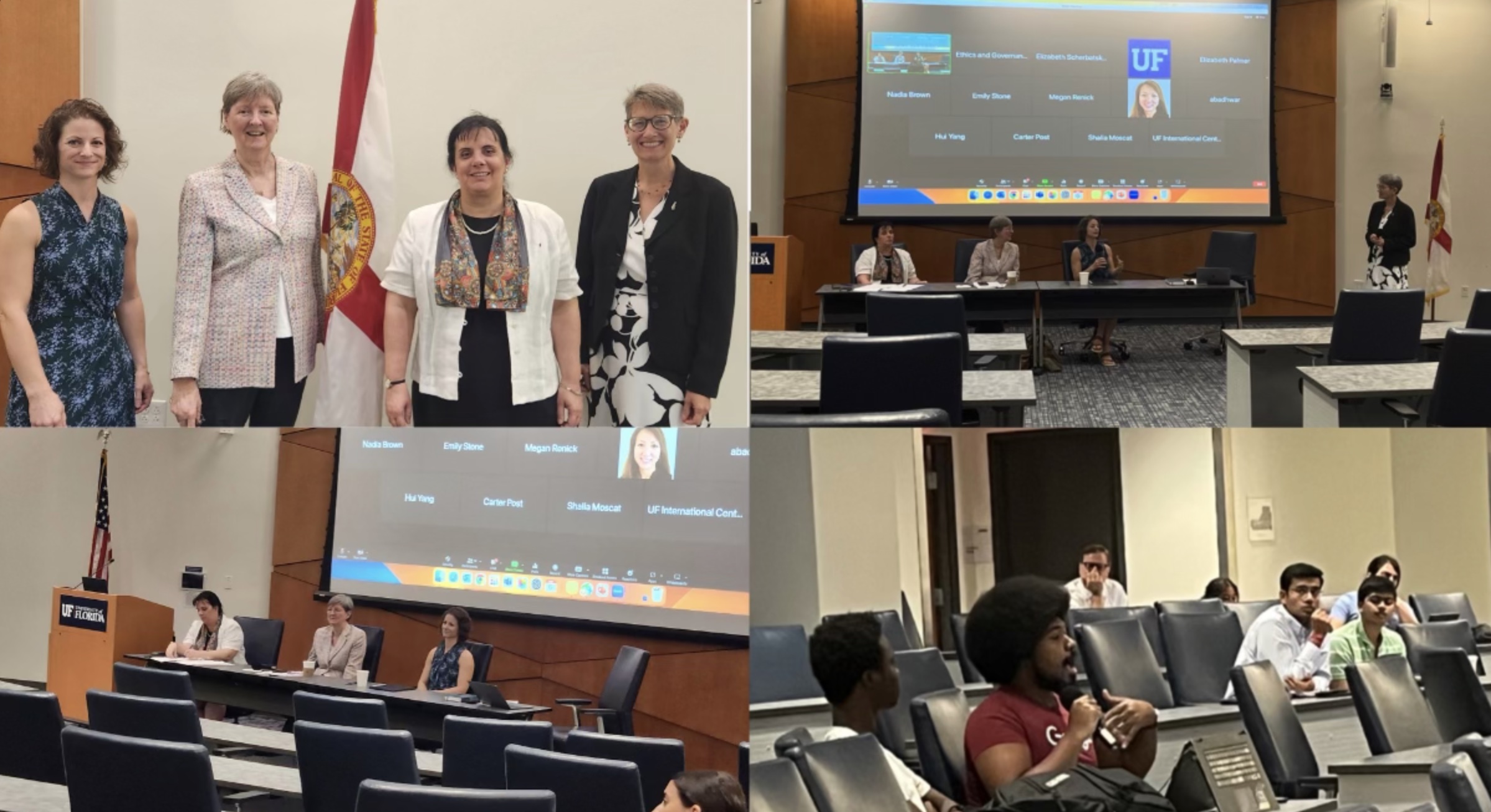Introduced by Dean Marta L. Wayne on potential international implications, a panel of AI ethics experts discussed the many considerations and ethical challenges of Artificial Intelligence such as lack of transparency of AI tools, AI decisions not always intelligible to humans or not being neutral, AI-based decisions susceptible to inaccuracies, and sometimes inserted bias. Surveillance practices for data gathering and privacy were also discussed.
These provocative workshop opened with remarks by Anne-Elisabeth Courrier who questioned if current Law and Ethics are strong enough to tackle challenges of AI technology. Courrier also discussed Health disparities in AI. Anne-Elisabeth Courrier is an Associate Professor in Public Law at the French University of Nantes. She joined the Center for Ethics, Emory University in April 2019 as a Visiting Fellow. She has centered her research interests to the relationship between Law and Ethics from a comparative perspective. With Postdoctorate Fellowships at the European University Institute (Florence, Italy) and at the Corvinus University of Budapest in Hungary, she has become more specialized on Ethics and the Law in social corporate responsibility, public governance, and, more recently, on Big Data and Artificial Intelligence, with the European and American perspectives.
The Panel of AI experts also included:
▪ Barbara J. Evans, Professor of Law and Stephen C. O’Connell Chair at the University of Florida Levin College of Law and holds a joint appointment as Professor of Engineering and Glenn and Deborah Renwick Faculty Fellow in AI and Ethics at UF’s Herbert Wertheim College of Engineering. Her work focuses on data privacy and the regulation of AI/ML medical software, genomic technologies, and diagnostic testing. Currently she is part of the NIH Bridge to Artificial Intelligence Patient-Focused CHoRUS for Equitable AI, a study to develop a national data infrastructure for AI in critical care.
▪ Amber Ross, Assistant Professor in Philosophy at the University of Florida, specializing in Ethics and Philosophy of AI. Her work explores the beneficial role that opaque expert reasoning plays in our ordinary epistemic practices and how to best incorporate opaque AI technology—such as LLMs—into this broader social practice. She is an active member of the UF AI Institute, AI2, the Working Group on AI Ethics, and a co-developer of the UF Ethics in AI Professional and Workforce Development course. She has served as an advisor for the AAU Taskforce on AI Ethics and is the author of “AI and the Expert; a blueprint for the ethical use of opaque AI”.

